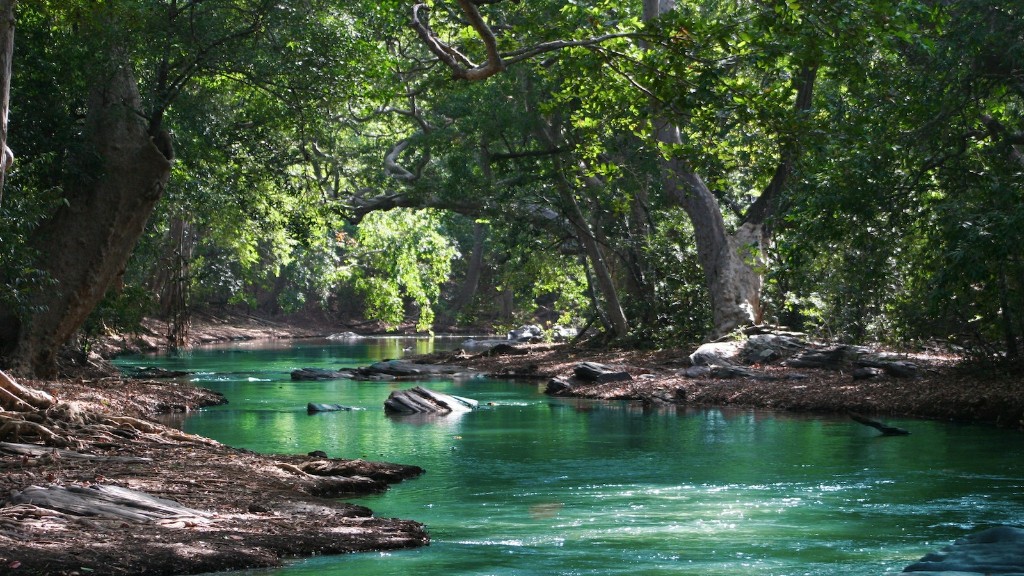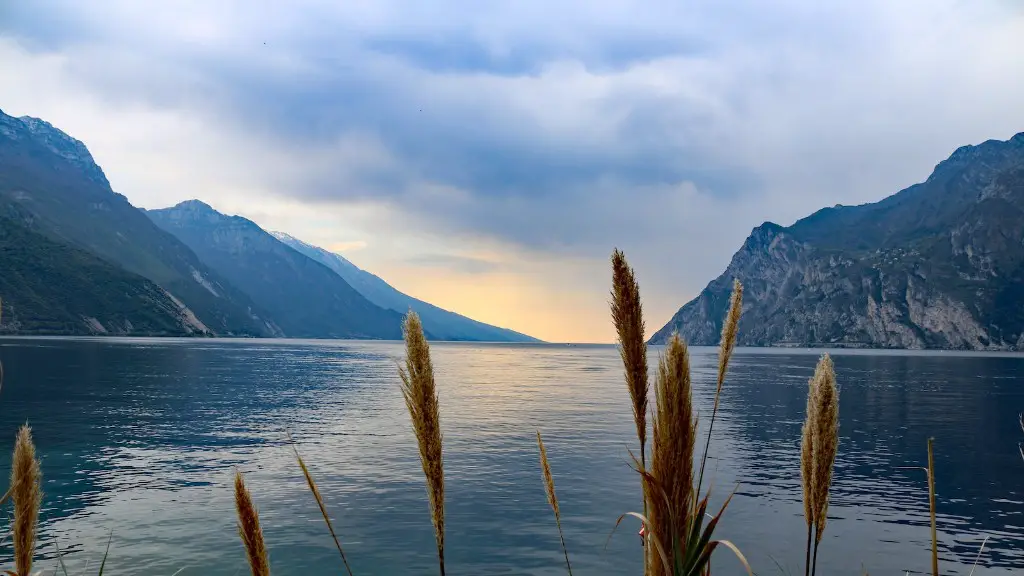Location and Formation
The Mississippi River is located in the midwestern and eastern United States. Its source is Lake Itasca in Minnesota, and it empties into the Gulf of Mexico. At 2,340 miles (3,766 km) in length, the Mississippi is the second-longest river in the United States, only the Missouri being longer. Forming the Mississippi Delta, the river’s aptly-named delta is located in northeastern Louisiana, where the lower reaches of the river merge with the Gulf.
Historical Significance
The Mississippi River has been an important part of American history, both physically and figuratively. Physically it served as a means of transportation and communication, while figuratively it shaped our nation’s boundaries, culture and politics. Pioneers traveled the river, steamboats ferried goods up and down, and now barges feed the nation’s economy.
The Mississippi River Delta is similarly steeped in history. It began to form around 7,000 years ago, when melting glaciers caused the river to overflow its banks and deposit sediment into its new lowlands. As the sediment built up, the delta eventually spread out into an intricate network of waterways and landforms that have been shaped by the river’s ever-changing course.
Mississippi Delta Today
Today, the Mississippi Delta is an area of incredible biodiversity and a source of vital economic activity for Louisiana and the nation. Hundreds of species of fish, birds, and animals exist in the delta, and its wetlands are an essential habitat for many of them. Its waters are fished for both food and recreational purposes, and its wetlands are used to grow rice and sugar cane.
However, the river delta faces a number of serious environmental threats. Increasing levels of development in the area, combined with the effects of climate change, have led to erosion and destruction of the wetlands that form the delta. This has undermined the delicate balance between land and water and threatens to permanently damage not just the Mississippi Delta, but the entire ecological system of the Gulf of Mexico.
Conservation Efforts
In order to protect the Mississippi Delta, a number of conservation initiatives have been set in motion. These include both state and federal regulations, as well as public-private partnerships and voluntary efforts from private landowners.
Conservation measures range from restoring wetlands and creating buffer zones, to preventing excessive water flow with dams and levees. In addition, there are a number of efforts to educate the public on the importance of preserving the Mississippi Delta.
The efforts of conservationists and activists, as well as the willingness of landowners to cooperate in the preservation of the delta, are vital to ensuring the continued existence of this important piece of our nation’s history and ecology.
Mississippi River Floods
The Mississippi River can often be subject to flooding due to heavy rains and snowmelt. While floods are natural and provide much-needed sediment for the Delta, they can also cause serious economic and ecological damage. In 1927, an unprecedented flooding of the river caused massive devastation, particularly in Louisiana, Arkansas and Mississippi.
In order to protect against such flooding, a system of levees was implemented along the river. The levees, which are constructed and maintained by the U.S. Army Corps of Engineers, act as a barrier and help to prevent the Mississippi River from spilling over onto its banks.
The depth and shape of the Mississippi Delta have allowed for the navigability of ships for many centuries. This flexibility was greatly improved by the addition of locks and dams, which help to control the river’s water level and improve its navigability.
As a result of its navigability, the Mississippi River is an important transport route for goods, with barges transporting goods up and down the river. Unsurprisingly, this has had a major impact on the economies of Louisiana and the surrounding states, as industries such as agriculture and energy production have benefited greatly from transport by barge.
Uses and Benefits
The Mississippi Delta has a number of uses and benefits apart from navigation and trade. Its wetlands are an integral part of the area’s ecosystem, providing habitats for wildlife and providing food and resources for people. In addition, the delta serves as an important area for recreation, with its miles of trails, beaches and wildlife preserves.
Finally, the Mississippi River Delta is a major source of cultural heritage for many people in Louisiana and the Gulf Coast. Its waterways and wetlands are an important part of the state’s history and culture, and the river itself continues to be a source of pride for many.
Limitations and Challenges
While the Mississippi River Delta provides many benefits and opportunities, it is not without its challenges. Development, climate change and other environmental stresses have had a major impact on the Delta’s ecology. This has threatened its biodiversity, as well as its ability to act as a natural buffer against flooding and extreme weather events.
In addition, the Delta’s navigability is being threatened by the increasing levels of sediment flowing into the river. The sediment can clog up the channels, limiting the size of boats that can pass through and potentially reducing the amount of goods that can be transported.
Conclusion
The Mississippi River Delta is an incredible example of the way in which the river has shaped our nation’s history and ecology. It is an important source of cultural heritage and economic activity, but is also subject to a number of threats. Conservation efforts, along with increased public awareness, are essential for ensuring the Delta’s continued health and sustainability.


